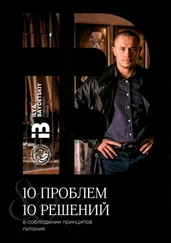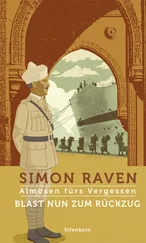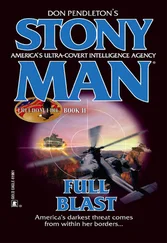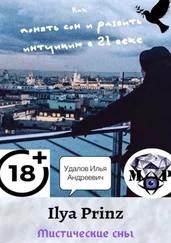© Ilya Bushmin, 2016
© Susan Welsh, translation, 2016
ISBN 978-5-4474-0966-1
Created with intellectual publishing system Ridero
When a butterfly hit his dirty windshield with a disgusting squish, Jerry shuddered. He reflexively turned on the wipers and pulled the washer knob, before remembering that the windshield wiper tank had been empty for a week. Once again he made a mental note to fill it, knowing full well that he would forget it again. Jerry took a sip from his beer can and, belching loudly, switched the radio to another station.
The dirty pickup made its way along the night road toward the city, the dim light of its dusty headlights illuminating the pavement ahead. The city lights ahead were almost impossible to make out through the dirty windshield. But somewhere in the east there was a glow: Soon it would be morning.
There was some kind of ridiculous comedy program on the radio. Through the wheezing old speakers he could hear a girl laughing, with an amazingly vile, squeaky voice:
“What? Don’t you know, a wedding in Vegas is no joke! That’s a real wedding!”
“That was funny when you weren’t even born yet, you idiot,” Jerry grumbled, belching again, and tried another station. The old speaker coughed out country music. Nodding with satisfaction, Jerry – a corpulent, bearded man under 50, almost as unkempt as his truck – reached for the beer.
His pickup drove past a brightly lit construction hypermarket that had opened a few years ago, three miles outside the city. He had heard on the radio that the city government had quarreled with the county over this site, since a hypermarket would be a tasty morsel for both of them. In the end, the city won and the city limits were formally extended along the highway to the hypermarket. Then the suckerfish, as Jerry called them, started to appear – smaller shops for construction supplies, eateries, offices of construction firms. But life in these prts was in full swing only in the daytime; in the pre-dawn hours it was as deserted as a cemetery. Only the street lights, devouring hundreds of dollars for nothing, and emptiness. And Jerry’s lone pickup truck crawling toward the city.
Taking the last swig, Jerry crumpled up the can, tossed it onto the back seat, and reached for another beer. With his peripheral vision, he thought he noticed some movement ahead.
He frowned, squinted, trying to peer through the dirty windshield.
Fifty yards away, to the right along the ramp to some sort of office or construction goods store, a shadowy figure was running, discernible against the brightly lit building. The shadow waved its arms and seems to be shouting something – Jerry thought he heard a voice over the blare of the music.
“What the hell?”
He slowed down a bit and craned his neck, trying to make out what was going on. A man was careening toward the road, waving his arms. The dim headlights showed him running to the curbside. A suit, tie, face contorted, eyes wide from horror. Over the wheezing of the music, Jerry clearly heard the cry: “Help!”
Screaming and waving with one hand, the man seemed to be grabbing at his throat with the other. Jerry frantically glanced from side to side (where’s his car, for crying out loud? Is this a trap? How did he get here?). He tried to gather his wits, decide whether to slow down or drive past. The man was just ten yards ahead when Jerry suddenly noticed, in the dim light of the headlights, his gleaming metal collar. A circular pipe a couple of inches thick. Jerry looked in amazement at the stranger running towards him, screaming with holy terror in his eyes: “Please! Help me! Take it off…!”
“What the…?!” Jerry was thunderstruck.
But he never got as far as “… hell.” Because the collar around the neck of the suit, who was by then practically under the wheels of Jerry’s vehicle, exploded with a deafening roar, blinding Jerry, shattering the dirty glass of the pickup, and leaving its driver stunned. Amid the roar of the explosion, he was peppered with debris traveling at the speed of a bullet, ripping into his face, piercing his skin, stabbing his eyes and throat.
The pickup zoomed past the man, flew onto the shoulder, flipped over, and crashed, wheels up. But Jerry didn’t feel it. He was already dead.
The suit, with his head blown off, kept running a couple of yards out of inertia, then also collapsed on the asphalt.
And then there was silence, broken only by the wheeze of Jerry’s radio from the wrecked, upside-down car.
Troy Brown was not completely against moving to Perte. Shelley’s main problem was not with him, but with their daughter Carol. Which meant they had to explain at great length that the school girlfriends of a seven-year-old are not the most important thing in the life of a family. But hell, when Brown couldn’t even find his favorite coffee mug in the morning because Shelley had already packed it – now that was too much.
“Shelley, don’t go off the deep end,” he grumbled, rummaging around in the box for the mug. “We’ve got a whole week ahead of us, so there’s no need to pack dishes, clothes… and my mug! What am I going to drink my coffee out of? Plastic cups?”
“We don’t have any plastic cups,” she smiled, pushing Brown away from the box. “Cut it out, before you get all steamed up. I’ll find it.”
In the kitchen, Carol was finishing breakfast, drinking juice and chattering:
“When will we get there? Are we going on vacation? I promised my classmates.”
“You will have other classmates,” Shelley muttered, fumbling in the box.
“Mom!” Carol whined.
“What? We’ve already discussed this a hundred times. Hell, where did I put it? Wait. Maybe the mugs are in the other one.”
Shelley left the room. Seeing his daughter’s skeptical look, Brown patted Carol on the head.
“Eat up. If you like, I’ll drop you off. And everything will be fine. You’ll like the new house.”
Carol did not think so, and stared sullenly at her plate. Shelley returned, triumphantly handing Brown his mug. And while he poured his coffee, Shelley said, with a dreamy smile,
“I can’t believe it. You’ve started your last week. Five days, and you’re free.”
That was when Brown’s cell phone rang.
As he drove along, Brown counted six patrol cars on the highway. Only one lane was open, with two patrolmen directing traffic, letting the cars by in one direction at a time. The yellow tape of the police cordon was tied to the cars” mirrors, blocking off a solid stretch of road. Crime Scene Investigation people were milling around on the pavement, inspecting something. The corpse had been covered with a cloth, with just a pair of expensive boots sticking out.
When Brown got out of the air-conditioned car, the heat slammed him. That’s really what he wasn’t going to miss in the cooler climate of Perte – this scorching heat. Nodding at the patrolmen, one of whom obligingly lifted the cordon for him to pass, Brown walked over to the corpse. A puzzled and somewhat confused DiMaggio appeared.
“Good morning.”
“I don’t know about that, Troy.” DiMaggio was already soaked in sweat. He squinted wistfully along the road, where a sparse line of cars stretched toward the city. “Just our luck. Half a mile further ahead, and the state would be dealing with this, not us.”
“Killers don’t give a damn about geography, didn’t you hear?”
“Want to take a look?”
DiMaggio motioned toward the corpse. With a frown, Brown stepped toward the sheet covering the body and, after lifting it for a second, instinctively turned his head in revulsion. The corpse looked as if some giant had just torn off the guy’s head. Brown couldn’t get the image out of his mind.
Читать дальше












